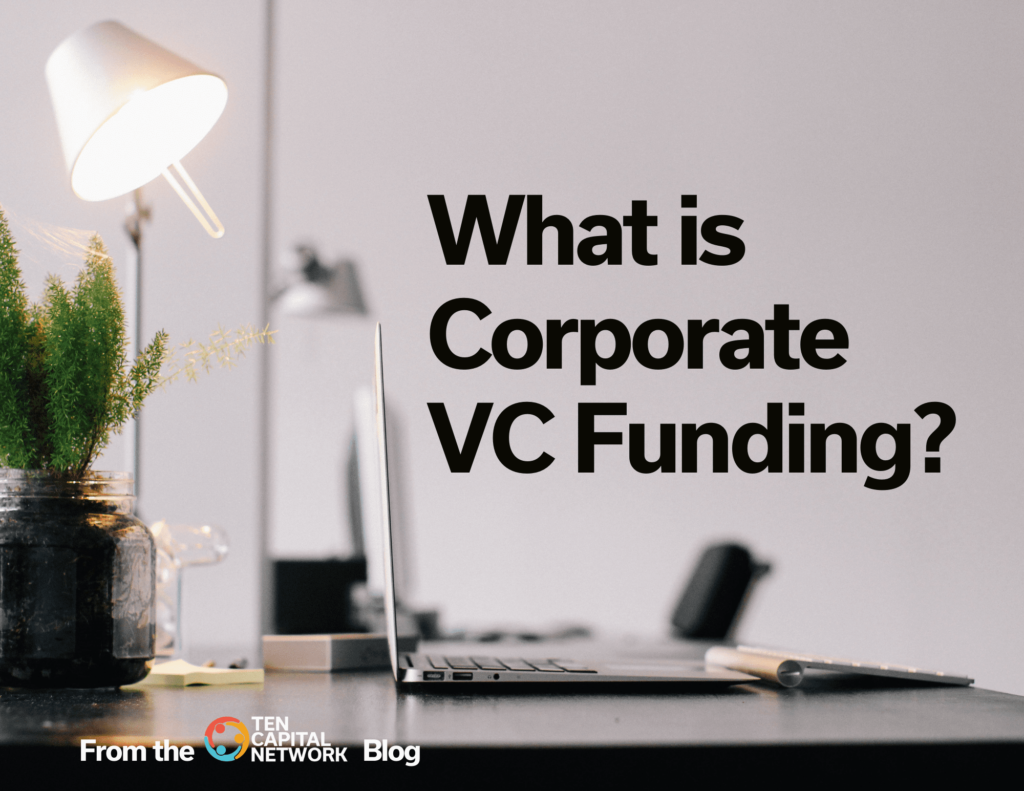3 min read Sure, we’ve all heard of venture capitalist funding. But what does it really mean? And how does it work? Today’s article gives you the inside scoop on everything you need to know about VC funding.
What is Corporate Venture Capital?
Corporate venture capital is an existing business utilizing venture funding to further the company’s strategic objectives. The firm takes an equity stake in startups either through an internal fund or off the corporate balance sheet.
Unlike traditional venture capital, corporate VCs look to gain a competitive advantage for the company and not a financial return.
The firm seeks to grow its business and uses investment in a startup to gain knowledge of an emerging market, identify key players in the industry, and potentially use the results to grow sales. These initial investments often lead to a buyout of the startup. The investment is a useful tool for diligencing a startup and influencing its direction.
There are some corporate VCs investing for a return on investment rather than strategic initiatives, but this is rare. Most corporate VCs make investments with the goal of winning more business for their current product and services. It’s a useful method for exploring new markets without committing substantial resources from the corporation.
Types of Corporate VC Funding
Corporate VC funding continues to grow as companies look for innovation and startups look for funding opportunities. There are several types of corporate VC funds. Listed below are three common types:
Traditional Investment Fund
- This fund looks and acts like a traditional VC fund.
- A fund is set up for the program, and investors source and diligence deals similarly to a traditional VC fund.
- Investments are made for financial reasons and can provide primarily management support.
Strategic Investment Fund
- Investments are made from the balance sheet and for strategic purposes.
- Investors don’t look for a financial return but rather collaborations.
- The team is small but works full time on the fund.
- Investments are not only financial resources but also strategic ones such as partnerships and sales channel access.
Opportunity Investment Fund
- Investments are made off the balance sheet and solely for specific projects.
- The team is not full-time and consists of members from various departments.
- Investors are typically product-focused and seek the investment to fill a product need.
- Investors provide limited strategic and financial support.
How a Corporate VC Works
Corporate venture capital is an existing business utilizing venture funding to further the company’s strategic objectives. The firm takes an equity stake in startups either through an internal fund or off the corporate balance sheet. Unlike traditional venture capital, corporate VCs look to gain a competitive advantage for the company and not a financial return.
The firm seeks to grow its business and uses investment in a startup to gain knowledge of an emerging market, identify key players in the industry, and potentially use the results to grow sales. These initial investments often lead to a buyout of the startup. The investment is a useful tool for diligencing a startup and influencing its direction.
There are some corporate VCs investing for a return on investment rather than strategic initiatives, but this is rare. Most corporate VCs make investments with the goal of winning more business for their current product and services. It’s a useful method for exploring new markets without committing substantial resources from the corporation.
Read more in the TEN Capital eGuide: https://www.startupfundingespresso.com/corporate-venturing-2/

Hall T. Martin is the founder and CEO of the TEN Capital Network. TEN Capital has been connecting startups with investors for over ten years. You can connect with Hall about fundraising, business growth, and emerging technologies via LinkedIn or email: hallmartin@tencapital.group





